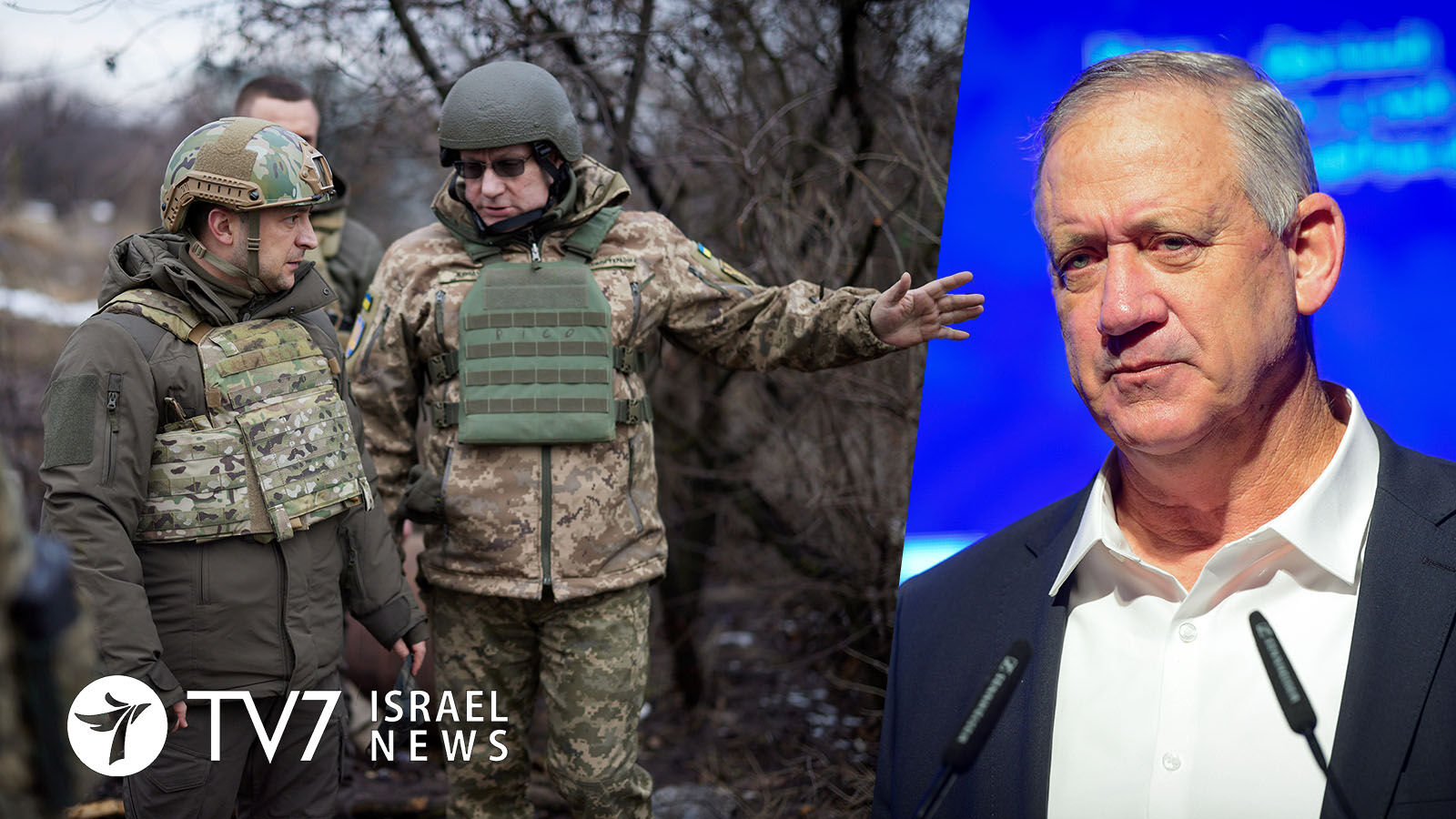The Israeli Ministry of Defense (IMoD) announced that the provision of the protective gear comes “in light of the request made by the Ukrainian Ministry of Defense.”
By Erin Viner
Israeli Defense Minister Benny Gantz informed his Ukrainian counterpart Oleksii Reznikov of the decision in a telephone call yesterday.
“This is part of Israel’s extensive effort to provide humanitarian aid, which includes the establishment of a field hospital, the absorption of refugees and immigrants, the provision of food and medical assistance and more,” said the IMoD.
The Jewish State has also shipped unprecedented levels of aid to Ukraine, including the establishing of a ₪21 million shekel ($6.4 million or €5.83 million) field hospital equipped to meet the medical needs for dozens of patients on a daily basis.
The Jewish State has also launched “Operation Returning Home” aimed at rescuing endangered Ukrainian Jews who may want to emigrate into the country of just over 9.3 million; as well as offer safe refuge to some 25,000 Ukrainians who are not eligible for immigration
Both Israeli and Ukrainian officials stressed that the shipment of helmets and vests is meant for rescue services and civilian organizations.
The Ukrainian Embassy in Israel confirmed the move in an English-language statement that mirrored the IMoD, saying, “In the light of the request made by the Ukrainian side, Israel will provide protective gear for the needs of Ukrainian rescuers and emergency services.”
The two Defense Ministers also discussed Israel’s role as led by Prime Minister Naftali Bennett and the international effort to bring an end to the war.
Israel has condemned the 24 February Russian invasion and expressed solidarity with Kyiv, but has so far held back from fulfilling Ukrainian President Vlodymyr Zelenskyy’s requests for military assistance for what Kyiv views as defensive aid against Moscow.
Zelenskyy, who addressed the Israeli Knesset last month, has expressed appreciation for Israel’s continuous efforts to act as an intermediary with Russia. Israeli Prime Minister Bennett has not only maintained contact with the leaders of both countries since outbreak of the conflict, but he also secretly flew to Moscow to hold direct talks with Russian President Vladimir Putin in early March.
“We are grateful for his efforts, so that sooner or later we will begin to have talks with Russia – possibly in Jerusalem,” President Zelenskyy stated previously, adding, “That’s the right place to find peace, if possible.”
Israel has been wary of straining relations with the Kremlin, which is a powerbroker in neighboring Syria where Israel coordinates strikes against Iranian deployments. Jerusalem and Moscow maintain a defense coordination mechanism in the Arab Republic to prevent clashes between their militaries. Russian forces have been deployed to fight in the Civil War on behalf of the Bashar al-Assad regime, while Israel frequently launches operations against deployments by Iran and its regional proxies such as the Hezbollah terror group in Syria.
Moscow has affirmed ongoing military cooperation with Jerusalem regardless of its war with Kyiv.
As a mediator in the Ukraine-Russia crisis, Prime Minister Bennett has underscored that Israel’s “measured and responsible approach” allows it to be “a credible player, one of the few that can communicate directly with both parties and assist as required.”
Meanwhile in the latest of a series of sanctions imposed on Russian President Vladimir Putin and the country’s largest lenders by the international community, the United States announced additional punitive measures against dozens of people and entities, including a Russian commercial bank and a virtual currency mining company, in attempts to target Moscow’s evasion of existing the sanctions over Russia’s invasion of Ukraine.
The US Treasury Department said it designated a virtual currency mining company for the first time, alongside more than 40 people and entities led by US-designated Russian oligarch Konstantin Malofeyev – who has long been accused of being one of the main sources of financing for Russians promoting separatism in Crimea. He was first designated under the Obama administration in 2014 when Russia annexed Crimea, and charged earlier this month by the US Justice Department with violating sanctions imposed on Russia after its invasion of Ukraine.
The move targets Russia’s virtual currency mining industry – believed to be the world’s third largest – by sanctioning the holding company of Moscow-based bitcoin miner BitRiver, which operates data center in Siberia, and 10 of the holding company’s Russia-based subsidiaries. The Treasury also slapped sanctions on the Transkapitalbank commercial bank, whose representatives are suspected of having implemented options to evade international punitive measures, and its subsidiary, Investtradebank.
The US assets of those designated will be frozen and generally American firms and individuals are barred from dealing with them.
“Treasury can and will target those who evade, attempt to evade, or aid the evasion of US sanctions against Russia, as they are helping support Putin’s brutal war of choice,” Treasury Under Secretary for Terrorism and Financial Intelligence Brian Nelson said in a statement.
“The United States will work to ensure that the sanctions we have imposed, in close coordination with our international partners, degrade the Kremlin’s ability to project power and fund its invasion,” he added.
The US State Department is also imposing visa restrictions on over 600 people in an effort to promote accountability for human rights abuses and violations, US Secretary of State Antony Blinken said in a statement, barring them from traveling to the US.
The targeted individuals, including three Russian officials, are accused of “suppressing dissent in Russia and abroad,” “gross violations of human rights” or who have “been actively complicit in actions that threaten or violate the sovereignty, territorial integrity, or political independence of Ukraine” as part of “President Putin’s unprovoked and unjustified war,” said Blinken.
“We will use every tool to promote accountability for human rights abuses and violations of international humanitarian law in Ukraine,” Blinken said, pledging that the US “will ensure that the sanctions we have imposed in close coordination with our international partners degrade the Kremlin’s ability to project power and fund its war of aggression.”
